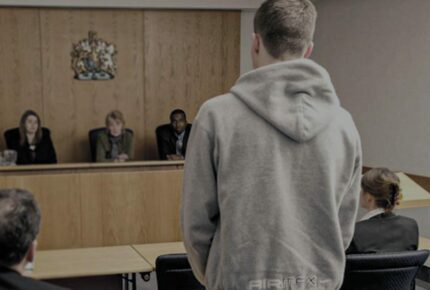

For the vast majority of people, being arrested or charged with a crime as serious as kidnapping is a frightening and overwhelming experience. The law surrounding kidnapping in England is complex, and the consequences of a conviction can be extremely serious. If you or someone you know is facing allegations of kidnapping, it is so important that you understand your rights, the legal process, and the importance of seeking expert legal advice as soon as possible. This article explains what you should do if you are arrested or charged for kidnapping, what to expect during the process, and where to get the help you need.
Do I need a solicitor for kidnapping?
Kidnapping is a common law offence in England, meaning it is not set out in a specific statute but has been developed through case law over time. The offence involves unlawfully taking or detaining another person by force or fraud, without their consent, and without lawful excuse.
If you are arrested or charged with kidnapping, you absolutely need a solicitor. Here are the key reasons why:
- Kidnapping is a very serious offence, often carrying lengthy prison sentences if convicted. The stakes are high, and the law is complex.
- The police will interview you under caution, and anything you say can be used as evidence. A solicitor will advise you on your rights and help you avoid saying anything that could harm your case.
- A solicitor will review the evidence against you, identify weaknesses in the prosecution’s case, and advise you on possible defences.
- If you are charged, a solicitor will represent you in court, prepare your case, and argue on your behalf.
- The law on kidnapping overlaps with other offences, such as false imprisonment or child abduction. A solicitor will ensure you are charged correctly and that your case is handled properly.
- If you are remanded in custody, a solicitor can make bail applications and argue for your release.
- Sentencing for kidnapping is complex and depends on many factors. A solicitor will present mitigation to the court to achieve the best possible outcome.
Without expert legal representation, you risk making mistakes that could seriously affect your case and your future. It is always in your best interests to have a specialist criminal defence solicitor by your side from the earliest stage.
What are possible defences for kidnapping?
The prosecution must prove you took or detained someone unlawfully and without their consent. Possible defences include:
- Lawful authority, if you had a legal right or duty to detain the person, such as acting under a court order.
- Consent, if the alleged victim willingly agreed to go with you or remain with you.
- Mistaken identity, if you were not the person involved in the alleged kidnapping.
- Lack of intent, if you did not intend to detain or take the person unlawfully.
- Challenging the evidence, such as questioning the accuracy of witness statements or the circumstances of the alleged detention.
A solicitor will examine the details of your case and advise you on the strongest possible defence.
Will I get bail for kidnapping?
Whether you will be granted bail for a kidnapping charge depends on several factors. Bail is not automatic, especially for serious offences like kidnapping. The court or the police will consider the following when deciding whether to grant bail:
- The seriousness of the offence and the strength of the evidence against you.
- Whether you have previous convictions, especially for similar offences.
- The risk that you might fail to attend court if released on bail.
- The risk that you might commit further offences while on bail.
- The risk that you might interfere with witnesses or obstruct the course of justice.
- Your personal circumstances, such as your ties to the community, employment, and family situation.
If the court is concerned about any of these risks, they may refuse bail and remand you in custody until your trial. However, in many cases, bail can be granted with strict conditions. These might include:
- Living at a specified address.
- Reporting regularly to a police station.
- Surrendering your passport.
- Not contacting certain people (such as the alleged victim or witnesses).
- Curfews or electronic monitoring.
Having a solicitor is vital when applying for bail. Your solicitor will present arguments and evidence to address the court’s concerns, propose suitable bail conditions, and give you the best chance of being released while your case is ongoing.
Will I have to go to court if I’m arrested or charged for kidnapping?
If you are charged with kidnapping, you will almost certainly have to go to court. Kidnapping is an indictable-only offence, which means it can only be tried in the Crown Court before a judge and jury. The process usually begins with a hearing in the Magistrates’ Court, where your case will be sent to the Crown Court.
At court, you will have the opportunity to enter a plea. If you plead not guilty, your case will proceed to trial. If you plead guilty, the court will move to sentencing. Throughout this process, your solicitor will represent you, advise you on your options, and ensure your rights are protected.
Court proceedings can be daunting, especially for those with no previous experience of the criminal justice system. Your solicitor will guide you through each stage, explain what to expect, and prepare you for giving evidence if necessary.
Will I go to jail if found guilty of kidnapping?
Kidnapping is regarded as a very serious offence by the courts, and a prison sentence is highly likely if you are found guilty. The length of the sentence will depend on several factors, including:
- The circumstances of the offence (for example, whether violence or threats were used, the duration of the detention, and the impact on the victim).
- Whether the offence was planned or spontaneous.
- Your role in the offence (for example, whether you acted alone or with others).
- Any previous convictions you may have.
- Whether you pleaded guilty at an early stage.
Sentences for kidnapping can range from several years to life imprisonment in the most serious cases. The Sentencing Council provides guidelines to help judges decide on the appropriate sentence, but each case is considered on its own facts.
Your solicitor will present mitigation on your behalf, highlighting any factors that may reduce your sentence, such as genuine remorse, lack of previous convictions, or personal circumstances.
Will I go to jail if it’s my first offence of kidnapping?
Even if it is your first offence, kidnapping is so serious that a custodial sentence is still very likely. The courts take a strict approach to offences involving the unlawful detention of another person, especially if there was any violence, threats, or harm caused to the victim.
However, the fact that it is your first offence will be taken into account as a mitigating factor. If there are other mitigating circumstances – such as a guilty plea, genuine remorse, or evidence that you were under duress – your solicitor will present these to the court to try to reduce the length of any prison sentence or, in rare cases, argue for a non-custodial sentence.
You should look for a solicitor who you feel confident can put forward the strongest possible case in mitigation and ensure that all relevant factors are considered by the court.
Can I get Legal Aid for kidnapping?
Legal Aid is available for those facing serious criminal charges such as kidnapping, provided you meet certain criteria. Legal Aid helps cover the cost of legal representation if you cannot afford to pay for a solicitor yourself.
To qualify for Legal Aid, you will need to pass both a means test (which looks at your income and assets) and a merits test (which considers the seriousness of the case and whether it is in the interests of justice for you to have legal representation).
Given the seriousness of kidnapping charges, the merits test is almost always satisfied. The main issue is whether you meet the financial eligibility requirements. The income test, also known as the means test, looks at your household income, savings, and any assets you may have. If your income is below a certain threshold, you are likely to qualify for Legal Aid in full. If your income is above the threshold, you may still be eligible for partial funding, but you might have to make contributions towards your legal costs. The assessment takes into account your partner’s income and certain living expenses.
With the right guidance, however, this is not a complicated process: your solicitor can help you gather the necessary financial information, complete the application, and advise you on the process, ensuring you have the best chance of securing Legal Aid.
Where to get more help
Facing a kidnapping charge is a life-changing event, and the consequences of a conviction can be severe. Get expert legal advice and representation as soon as possible. Stuart Miller Solicitors are highly experienced in defending clients accused of kidnapping and other serious offences. Our team will guide you through every stage of the process, protect your rights, and fight for the best possible outcome. If you or someone you care about has been arrested or charged with kidnapping, contact Stuart Miller Solicitors today for a free, confidential consultation. We are here to help you when you need it most.
OUR COMMITMENTS TO YOU:
-
Responsive
A legal expert will consult you within 24 hours of making an enquiry.
-
Empathetic
We will always treat you with trust, understanding and respect.
-
Specialised
Your case will be handled by an expert who specialises in your type of offence.
-
Proactive
We will take early action to end proceedings as soon as it is practically and legally possible to do so.
-
Engaged
You will be kept updated on your case at all times. We will provide a named contact available to answer your questions.
-
Caring
We understand this is a difficult and stressful time for you and your family. Our team will support you every step of the way.
-
Tenacious
We will never give up on your case. We fight tirelessly to get you the best possible outcome.

